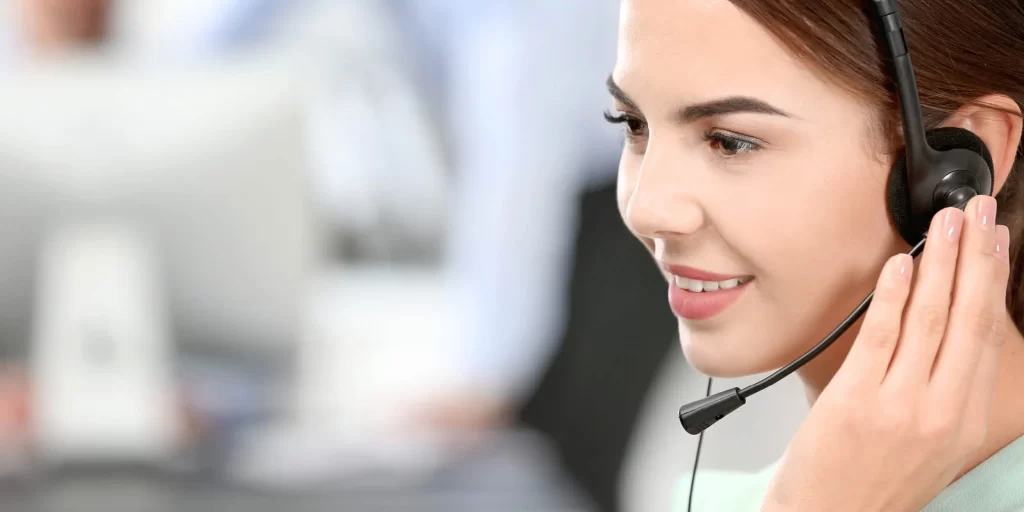Washington Drug Abuse Hotlines
Written by Thomas Christiansen
& Medically Reviewed by Kanika Sharma-Mittra
Medically Reviewed
Up to Date
Last Updated - 6/17/2022
View our editorial policy
A person struggling with drug abuse along with their loved ones only benefit from as much information and resources as possible on drug addiction. Drug abuse hotlines provide guidance for people looking to find treatment or discuss their addiction. Many drug abuse hotlines in Washington state are available 24/7. Individuals can find Washington state drug crisis hotlines for themselves or for loved ones with substance use disorders.
When to Call a Drug Abuse Hotline
People should call drug abuse hotlines when they’re ready to discuss their addiction or substance use disorder. Drug abuse hotlines are toll-free numbers that provide information and assistance with all issues concerning substance use disorders, including specific signs and symptoms of drug abuse. Some individuals struggling with drug abuse may find it difficult to admit that they have an addiction. Trained counselors or experts employed by the hotlines provide callers with treatment options and can direct them toward local rehabilitation facilities.
Local Substance Abuse Hotlines
There are numerous local abuse hotlines in Washington state that individuals can call and discuss all aspects of their own addiction. Alternatively, these helplines also exist for friends or family to gain insights into their loved one’s addiction. Drug abuse hotlines in Washington state include:
Washington Recovery Helpline
Washington residents can use the Washington Recovery Helpline. This helpline offers 24-hour, toll-free and confidential drug addiction advice. People who call this helpline can receive information about drug addiction and other co-occurring mental health conditions. Trained counselors provide callers with information regarding local rehabilitation facilities as well as emotional support.
- 1-866-789-1511
- Hours: 24/7
Teen Link
Teen Link is a toll-free, confidential helpline for teens and young adults who are between the ages of 13 and 20. With counselors that are also teenagers, this helpline is notable for its peer-to-peer support and how it helps teenagers relate to one another’s experiences regarding mental health and addiction. Volunteers provide information for King County, Washington, area.
- 1-866-TEENLINK or 1-866-833-6546
- Hours: 6pm-10pm PST
Crisis Connections
Crisis Connections was originally called the Crisis Clinic and still serves the people of Seattle/King County. For those in a drug addiction crisis, they can attain information regarding mental health and rehabilitation facilities in their area. Some crisis issues include emotional instability, relationship discord, depression, physical abuse, substance abuse and suicidal tendencies, among other topics.
- 1-866-4CRISIS (1-866-427-4747)
- Hours: 24/7
Washington Poison Control Center
Washington residents can receive information on exposure to poisonous chemicals, pesticides, carbon monoxide and other hazardous substances through the Washington Poison Control Center. The Washington Poison Control Center is a non-profit organization offering 24-hour support for any kind of poison-related accident or emergency. Apart from providing immediate help, this center also organizes programs to educate the public about the preventive measures related to accidental poisoning and medication overdose.
- 1-800-222-1222
- Hours: 24/7
SAMHSA Helpline and Treatment Locator
SAMHSA provides a Behavioral Health Treatment Service Locator. The SAMHSA treatment locator provides information on treatment facilities for substance use disorders and other mental health conditions. The treatment locator can help individuals find subsidized treatment facilities and plans. SAMHSA also offers a free national helpline available 24 hours a day to provide treatment referrals and community-based organizations.
- 1-800-662-HELP (4357)
- Hours: 24/7
Local Washington State Support Groups
The philosophy behind drug addiction support groups involves bringing together people who face similar problems. The goal of such groups is for everyone to come together, share their experiences, encourage one another to stay sober and to continue to live healthy lives. Washington state has many local support groups for various substance use disorders including:
- Alcoholics Anonymous: Alcoholics Anonymous (AA) is a fellowship for men and women who are trying to recover from alcoholism. There is no membership fee and during AA meetings in Washington state, people meet, discuss their issues and experiences and try to support one another. Individuals can find local AA meetings in Washington state using resources on the AA website.
- Narcotics Anonymous: Narcotics Anonymous (NA) is for people who share the desire to stop using narcotics. The program requires members to discontinue their use of narcotics. Anyone is welcome at NA meetings, regardless of their past drug use. There are no membership fees required to attend NA meetings in Washington state.
- Cocaine Anonymous: Cocaine Anonymous (CA) is for people who share the desire to stop using cocaine and other narcotics. CA follows the 12 step recovery program. Cocaine Anonymous meetings in Washington state take place within various counties.
Washington State Addiction Treatment Center
The Recovery Village Ridgefield is an addiction treatment center in Washington state that offers a holistic approach to treating drug and alcohol addiction. The facility is located a commutable distance from Portland, Oregon, and Seattle, Washington. The Recovery Village Ridgefield provides residential and outpatient treatment options. Patients are presented with individualized treatment plans along with counseling to help them on their road to recovery.
If you struggle with drug addiction, contact The Recovery Village Ridgefield to speak with a representative about how addiction treatment can help. You deserve a healthier future, call today.
Sources
Teen Link. “Teen Link.” Accessed July 26, 2019.
A.A. Near You. “A.A. Near You.” Accessed July 26, 2019.
Alcoholics Anonymous. “Alcoholics Anonymous.” Accessed July 26, 2019.
Cocaine Anonymous. “Cocaine Anonymous.” Accessed July 26, 2019.
Crisis Connections. “Crisis Connections.” Accessed July 26, 2019.
Narcotics Anonymous. “Narcotics Anonymous.” Accessed July 26, 2019.
SAMHSA. “Behavioral Health Treatment Services Locator.” Accessed July 26, 2019.
Washington Poison Center. “Washington Poison Center.” Accessed July 26, 2019.
Washington Recovery Helpline. “Washington Recovery Helpline.” Accessed July 26, 2019.
View Sources
Teen Link. “Teen Link.” Accessed July 26, 2019.
A.A. Near You. “A.A. Near You.” Accessed July 26, 2019.
Alcoholics Anonymous. “Alcoholics Anonymous.” Accessed July 26, 2019.
Cocaine Anonymous. “Cocaine Anonymous.” Accessed July 26, 2019.
Crisis Connections. “Crisis Connections.” Accessed July 26, 2019.
Narcotics Anonymous. “Narcotics Anonymous.” Accessed July 26, 2019.
SAMHSA. “Behavioral Health Treatment Services Locator.” Accessed July 26, 2019.
Washington Poison Center. “Washington Poison Center.” Accessed July 26, 2019.
Washington Recovery Helpline. “Washington Recovery Helpline.” Accessed July 26, 2019.
Authorship






